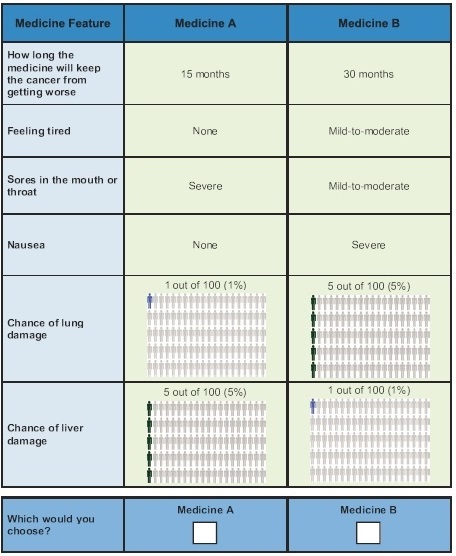As a pharmaceutical or device manufacturer, your products have different attributes related to safety, efficacy, mode of administration, etc. and so do your competitor’s products—but, do you know which of those attributes matter most to your patients?
As a stated-preference method, discrete-choice experiments (DCE)/conjoint analysis look at the relative attractiveness of your product as a function of its attributes. Subjects in a discrete-choice experiment are asked to choose among treatment options with different sets of benefits and potential adverse events. Treatment attributes are relative based on a person’s understanding of their disease state, disease progression, and available therapies, so market segments can emerge from these experiments.
Below is an example of a discrete choice survey item:

Our Approach
Our scientifically-rigorous approach to DCEs ensures actionable results to inform your drug development and market access strategies. For your project, we conduct the following:
- Identify attributes and levels: We collaborate with clients to identify the key product attributes.
- Develop and test the survey: We draft surveys with appropriate language for your target subjects. We then test the survey and modify it based testing results.
- Finalize the survey: We finalize the survey design so that we can estimate main effects and interaction effects and develop preference weights for each attribute level.
- Recruit subjects and administer the survey: We recruit subjects for each study that are representative of the target patient population(s). Our experience includes numerous recruitment techniques including working with sites, patient advocacy groups, patient panels, and social media.
- Analyze data and provide reports and manuscripts: We provide study reports, manuscripts for peer-reviewed journals, and present results at scientific conferences.




